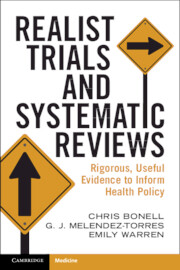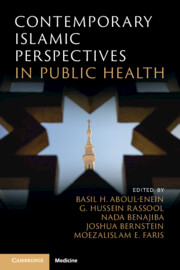Realist Trials and Systematic Reviews
This book describes an innovative approach to the evaluation of complex health interventions, assessing what interventions work, how and for whom. Rejecting the stalemate between trials and realist evaluation, it draws on the best of both. Randomised controlled trials and systematic reviews offer the least biased means of assessing intervention effects but tell us little scientifically about how interventions work. Policy-makers and practitioners are also not supported to decide which interventions are likely to achieve most benefits in their local contexts. Realists use other forms of evaluation and evidence synthesis exploring how intervention mechanisms interact with context to generate outcomes. But these approaches lack rigour in assessing causality. This book proposes how realist evaluation methods may be incorporated within randomised controlled trials and systematic reviews. This enables evaluations and evidence synthesis to benefit from the more nuanced questions posed within realist enquiry while maintaining rigour in assessing causality.
- Provides a full explanation of randomised controlled trials, other evaluation designs, systematic reviews, realist evaluations, realist reviews, process evaluations and outcome evaluations, ensuring that readers are not confused by terminology and are educated in the key evaluation methods
- Ensures readers are not only are convinced of the value of realist trials and realist systematic reviews but also understand in detail how these are to be conducted by providing a detailed justification for and description of realist trial and realist systematic review methods
- Provides practical examples of how realist trials and realist systematic reviews can be applied
Product details
February 2024Paperback
9781009456609
134 pages
234 × 154 × 8 mm
0.22kg
Available
Table of Contents
- 1. Introduction
- 2. Why are trials and systematic reviews necessary but insufficient to inform health policy?
- 3. Realist critiques and manifesto for evaluation and reviews
- 4. Building realist theory in evaluations
- 5. Refining realist theory through process evaluations
- 6. Testing realist theory through trials or other evaluation designs
- 7. Building and refining realist theory in systematic reviews
- 8. Testing realist theory through synthesising outcome evaluations
- 9. Using evidence to inform intervention scale-up and transfer
- 10. Using evidence to refine middle range theory
- Conclusions.









